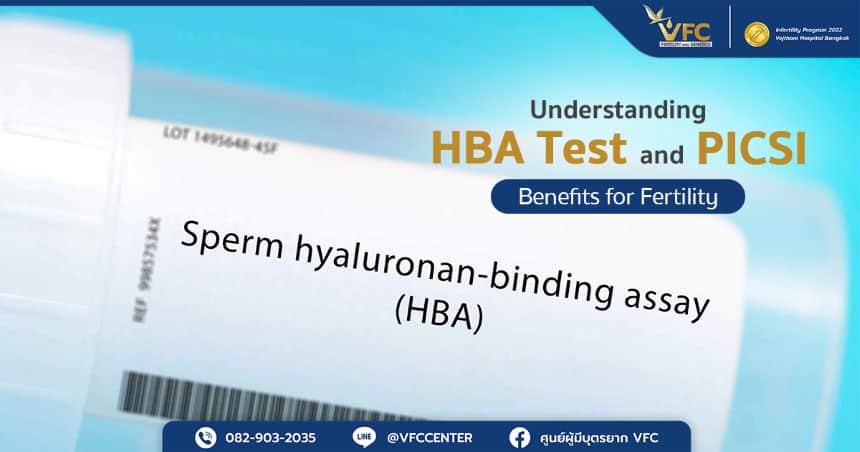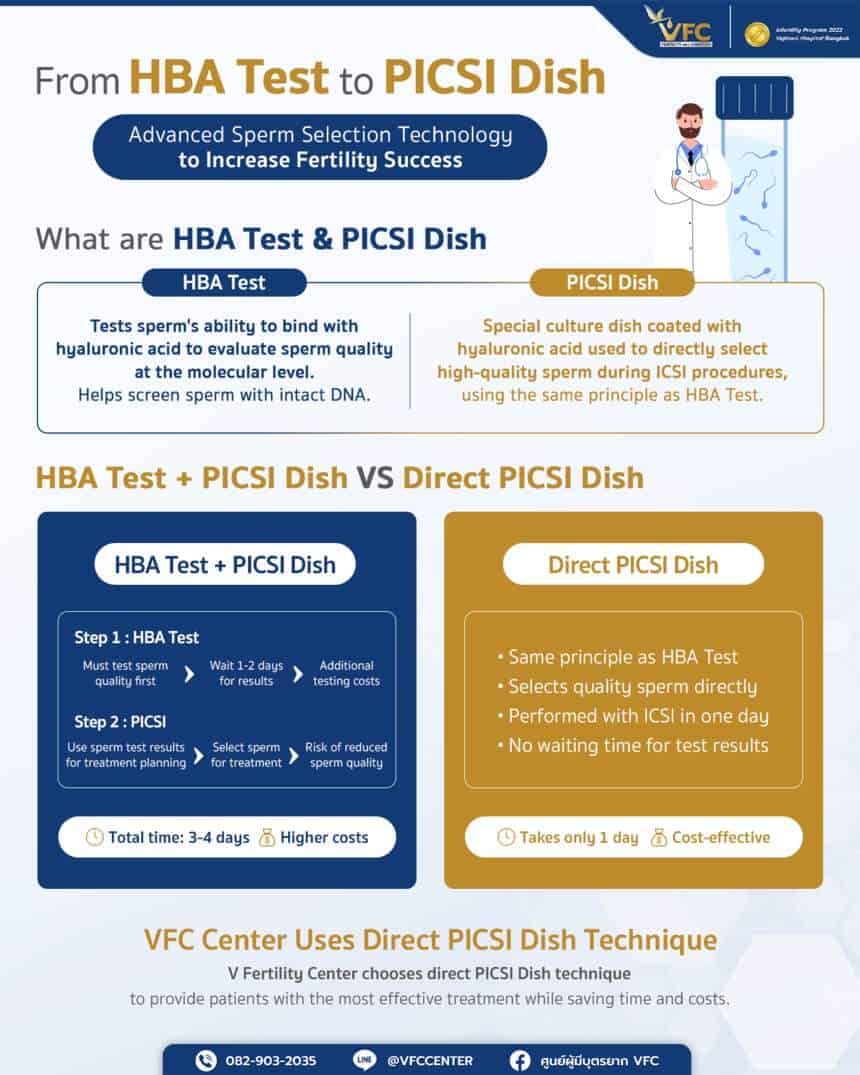
The HBA Test is another option for assessing sperm quality to help increase pregnancy success rates. Generally, infertility can result from various factors, but male-related issues account for 30-40% of couples experiencing fertility challenges. One major cause is poor sperm quality. These days, innovative molecular-level sperm quality testing has become more sophisticated. The HBA Test is one such advancement that evaluates sperm quality at a more detailed level than standard testing, allowing the results to be effectively applied in assisted reproductive technology treatments.
What is the HBA Test?
The HBA (Hyaluronan Binding Assay) test measures sperm’s ability to bind with hyaluronic acid.
Hyaluronic acid, a natural substance, is a major component of the extracellular matrix (ECM) surrounding oocytes, especially within the cumulus-oocyte complex (COC). Mature sperm have specific receptors for this substance. Therefore, sperm that can bind well with hyaluronic acid are typically high-quality sperm with intact DNA that have undergone proper development.
The test results show the percentage of sperm that can bind with hyaluronic acid, providing a clear indication of sperm quality at the molecular level.
Benefits of HBA Test
- Deep sperm quality assessment – Standard testing only examines count, shape, and movement, but HBA Test can evaluate quality at the molecular level
- DNA abnormality screening – Helps identify sperm that haven’t fully matured, even if they have normal shape and movement but high likelihood of DNA abnormalities
- Treatment decision support – Ideal for couples with multiple IVF failure history, helping choose appropriate treatment methods
- Reduced genetic risks – Lowers risks of genetic abnormalities in embryos
- Increased success rates – Helps improve fertilization and embryo implantation success rates
- Suitable for special cases – Perfect for men with unexplained infertility history or sperm abnormalities
HBA Test Procedure
The HBA Test involves these steps:
- Pre-test preparation – Abstain from sexual activity 2-5 days before sample collection
- Semen sample collection in a sterile container
- Sample placement on special slides coated with hyaluronic acid
- Counting sperm that bind with hyaluronic acid compared to total sperm count
- Percentage calculation of sperm able to bind with hyaluronic acid – normal values should exceed 80%
Interpreting Test Results
HBA Test results are divided into 3 levels
- Good results above 80% indicate excellent sperm quality with low DNA abnormality risk
- Moderate results 60-80% may require special sperm selection techniques
- Low results below 60% indicate high DNA abnormality risk and require special sperm selection techniques before ICSI
From HBA Test to PICSI: Applying Sperm Test Results in Treatment
When HBA Test results don’t meet standards, PICSI (Physiological ICSI) technique is used for sperm selection. PICSI Dish is a special culture dish coated with hyaluronic acid to select high-quality sperm for subsequent infertility treatment.
Sperm that can bind with hyaluronic acid in the PICSI dish are selected for direct injection into female oocyte. This technique helps improve embryo quality and increase pregnancy success rates.

PICSI Dish: Technology That Works Without HBA Testing
Currently, VFC Center uses PICSI Dish technique for selecting high-quality sperm. This technology uses the same principle as HBA Test but can be applied directly in treatment procedures without prior screening tests.
The advantage of using PICSI Dish is that it saves both time and costs, reduces multiple sample handling that might affect sperm quality, and allows direct quality sperm selection during ICSI procedures.
PICSI Technique Effectiveness in ICSI Process
The use of the PICSI technique in ICSI procedures results in higher fertilization rates, better quality embryos, increased embryo implantation rates, reduced miscarriage rates, and higher pregnancy success rates. It also improves live birth outcomes among older couples and helps mitigate the poor prognosis usually ascribed to advanced maternal age. PICSI may provide better treatment outcomes after previous failed ICSI cycles.

Who Should Consider PICSI
- Couples with multiple unexplained IVF or ICSI failure history
- Men with abnormal sperm test results, especially regarding shape and movement
- Couples with recurrent miscarriage history
- Older individuals
- Optimizing success rates in cases with few oocytes
Frequently Asked Questions About HBA Test and PICSI
How does the HBA Test differ from standard sperm testing?
Standard sperm testing only examines count, shape, and movement, while HBA Test evaluates quality at the molecular level by assessing hyaluronic acid binding ability.
Can PICSI Dish be used without HBA Test?
Yes, because PICSI Dish uses the same principle as the HBA Test for selecting sperm that can bind with hyaluronic acid. Using PICSI Dish directly saves more time and costs while achieving equivalent results.
How much do pregnancy success rates increase after using PICSI technique?
Studies show pregnancy rates increase by 10-15% compared to standard ICSI.
Are there side effects or additional risks from using PICSI?
PICSI is a safe technique with no additional side effects – it simply improves sperm selection methods.
If you’re planning to have children and experiencing infertility, especially with male factors involved, VFC Center (V Fertility Center) is ready to provide consultation and present treatment options suitable for you. With the latest PICSI technology that helps increase pregnancy success rates without requiring HBA Test, saving both time and costs. We’re also ready to provide infertility treatment services for people with different problems, including surgical sperm retrieval in Bangkok for those with no sperm in semen. Schedule a consultation with our doctors today to begin your journey toward having a healthy, complete family.
Contact or Book a Consultation:
VFC Center – V-Fertility Center
Hotline: 082-903-2035
LINE Official: @vfccenter

The team of specialists in obstetrics and gynecology and reproductive medicine





No Comments
Sorry, the comment form is closed at this time.